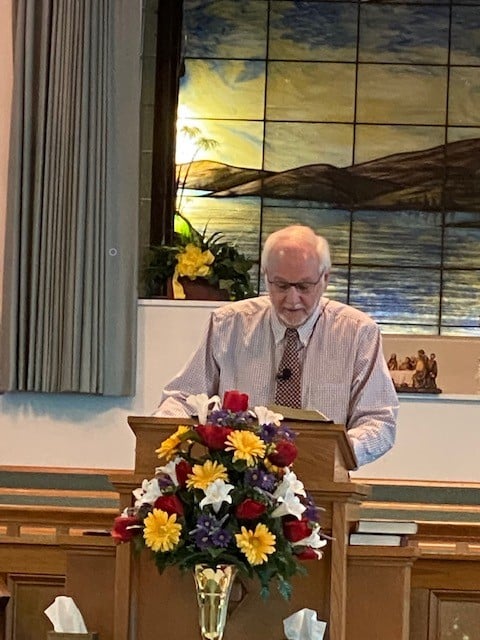Isaiah is one of God’s most well-known prophets in the Old Testament. Unlike many of the prophets, he had access to the Kings of Judah; and would many times, at the Lord’s command, advise them. God spoke through Isaiah often, such as in Isaiah 55:8-9. There we read, “For my thoughts are not your thoughts, neither are your ways my ways,” saith the LORD, “for as the heavens are higher than the earth, so are My ways higher than your ways, and my thoughts than your thoughts. For as the rain cometh down, and the snow from heaven, and returneth not thither, but watereth the earth, and maketh it bring forth and bud…….; so shall my word be that goeth forth out of my mouth; it shall not return unto me void, but it shall accomplish that which I please, and it shall proper in the thing whereto I sent it.”
His ways not being our ways was certainly on display in the time of Jeremiah, who prophesied ~150 years later, at a time when Judah was facing God’s judgment because of their sins. In that time, God announced that He would use Babylon to destroy the nation, and that those who were not killed would be exiled in Babylon. The first group went into captivity in 605 BC. This included Daniel and the three Hebrew children: Shadrach, Meshach and Abednego. The next group of exiles were taken in 597 BC and included 18-year-old King Jehoiachin and the prophet Ezekiel.
Right after this 2nd group went into captivity God gave Jeremiah a vision where he saw two baskets of figs (see Jeremiah 24). God asked Jeremiah what he saw and, looking at both baskets replied, “Figs, the good figs, very good; and the evil, very evil, that cannot be eaten, they are so evil” (v. 3). God explained to Jeremiah that the good basket of figs actually represented those captives that had been taken into captivity, that He had been removed for their own good and intended to favor them in the future by restoring them (or their descendants) to their land.But the bad figs represented those that remained in Judah under King Zedekiah. What awaited him and the rest of Judah was ‘the sword, the famine and the pestilence until they be consumed from off the land and destroyed’ (v. 10).
Thirty-seven years later Nebuchadnezzar died and, according to II Kings 25:27-30, his successor, Evil-Merodach, released Jehoiachin and set him above the other captive kings in Babylon. For the rest of His life, he was treated extremely well, had 7 sons and ate his meals before the King of Babylon (Babylonian Cuneiform Tablets confirm this).
Indeed, God’s ways are not our ways. I’m sure King Jehoiachin thought being taken into Babylonian Captivity was the worst thing that could happen to him. But, as promised, he lived and his descendants returned to Judah after the 70-year Babylonian captivity. But King Zedekiah was captured at Jerusalem’s destruction and taken before Nebuchadnezzar. There, he was forced to witness his sons executions, right before having his own eyes put out and sent to prison in Babylon, where he died (II Kings 25: 5-7).
Romans 8:28 says, ‘For we know that all things work together for good to those who love God…’. So, I guess what we learn here, is that before we complain about what happens to us in life, we might be wise to wait until the final results are in.
For God’s glory and His alone,
Pastor Terry.


